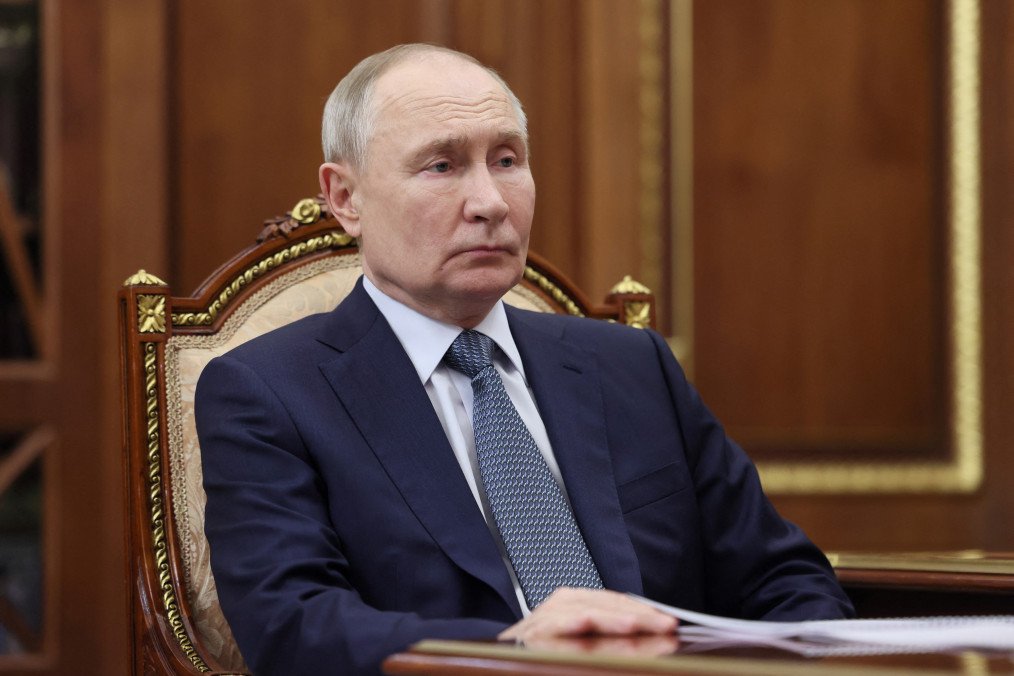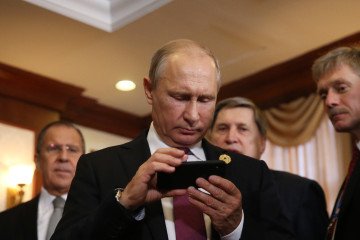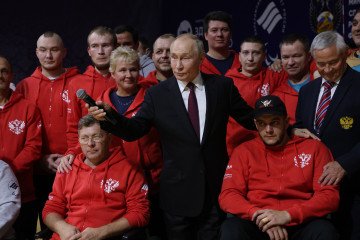- Category
- Latest news
Putin Cannot Be Tried in Absentia by Ukraine War Tribunal While in Power, EU Officials Say

The special tribunal that Western nations plan to establish for the crime of aggression against Ukraine will not try Vladimir Putin in absentia as long as he remains president of Russia. The same applies to Prime Minister Mikhail Mishustin and Foreign Minister Sergey Lavrov, according to two European officials cited by Euronews on April 11.
Trials of these top officials will only be possible if they are physically present—a scenario unlikely given Russia’s refusal to recognize the war as criminal or cooperate with the West. A trial in absentia may be considered once Putin leaves office, according to Euronews.
The tribunal, focused specifically on the crime of aggression, is expected to be hosted in The Hague under the framework of the Council of Europe. Though not an EU body, the Council has strong EU backing. Technical work concluded in late March during a Core Group meeting in Strasbourg, producing three key documents: a bilateral agreement with Ukraine, the tribunal’s statute, and a management agreement.
Signing is tentatively set for May 9 in Kyiv—Europe Day—pending political endorsement. Once signed, the deal will go to the Council of Europe’s Parliamentary Assembly, where a two-thirds majority is needed. Approval is expected given widespread support, though some countries like Hungary and Serbia may abstain or oppose, Euronews reported. No single country can veto the process.
Democracies such as Canada, Australia, New Zealand, and Japan are also expected to join.
-c98d1f1e3d640641bd535d2a6944dee4.jpg)
The initiative, long pushed by Ukrainian President Volodymyr Zelenskyy, aims to hold Russia’s leadership accountable for launching the full-scale invasion. Unlike war crimes or crimes against humanity, which target those directly committing atrocities, the crime of aggression prosecutes top officials responsible for initiating acts of war—such as invasions, blockades, or occupations.
Under the ICC’s Kampala Amendments, the crime of aggression is defined as the planning or execution of such acts by those in control of a state’s political or military direction. However, since Russia is not party to the Rome Statute, the International Criminal Court (ICC) lacks jurisdiction in this case—prompting the creation of a special tribunal.
“Without the crime of aggression, there wouldn’t be any war crimes either,” said High Representative Kaja Kallas. “No one from Russia’s leadership is untouchable.”
On March 17, 2023, the ICC issued an arrest warrant for Putin. He is accused of war crimes related to the unlawful deportation and transfer of Ukrainian children from occupied areas of Ukraine to the Russian Federation.
Earlier in February, The Council of Europe has reached an agreement on the legal framework for establishing a Special Tribunal for the Crime of Aggression against Ukraine. If created, the tribunal will operate independently of the ICC.
-b2fecf006e6a7ef2d3584636123ee64f.jpg)

-a083fcdedd4caa1998c9ea099b5016e2.jpg)





